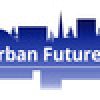Abstract
Scenarios are a useful tool to help think about and visualise the future and, as such, are utilised by many policymakers and practitioners. Future scenarios have not been used to explore the urban context in much depth, yet have the potential to provide valuable insights into the robustness of decisions being made today in the name of sustainability. As part of a major research project entitled Urban Futures, a toolkit has been developed in the UK to facilitate the use of scenarios in any urban context and at any scale relevant to that context. The toolkit comprises two key components, namely, (i) a series of indicators comprising both generic and topic area-specific indicators (e.g., air quality, biodiversity, density, water) that measure sustainability performance and (ii) a list of characteristics (i.e., 1–2-sentence statements about a feature, issue or small set of issues) that describe four future scenarios. In combination, these two components enable us to measure the performance of any given sustainability indicator, and establish the relative sensitivity or vulnerability of that indicator to the different future scenarios. An important aspect of the methodology underpinning the toolkit is that it is flexible enough to incorporate new scenarios, characteristics and indicators, thereby allowing the long-term performance of our urban environments to be considered in the broadest possible sense.
Keywords
Downloads
Publication Date
1st of November 2011

